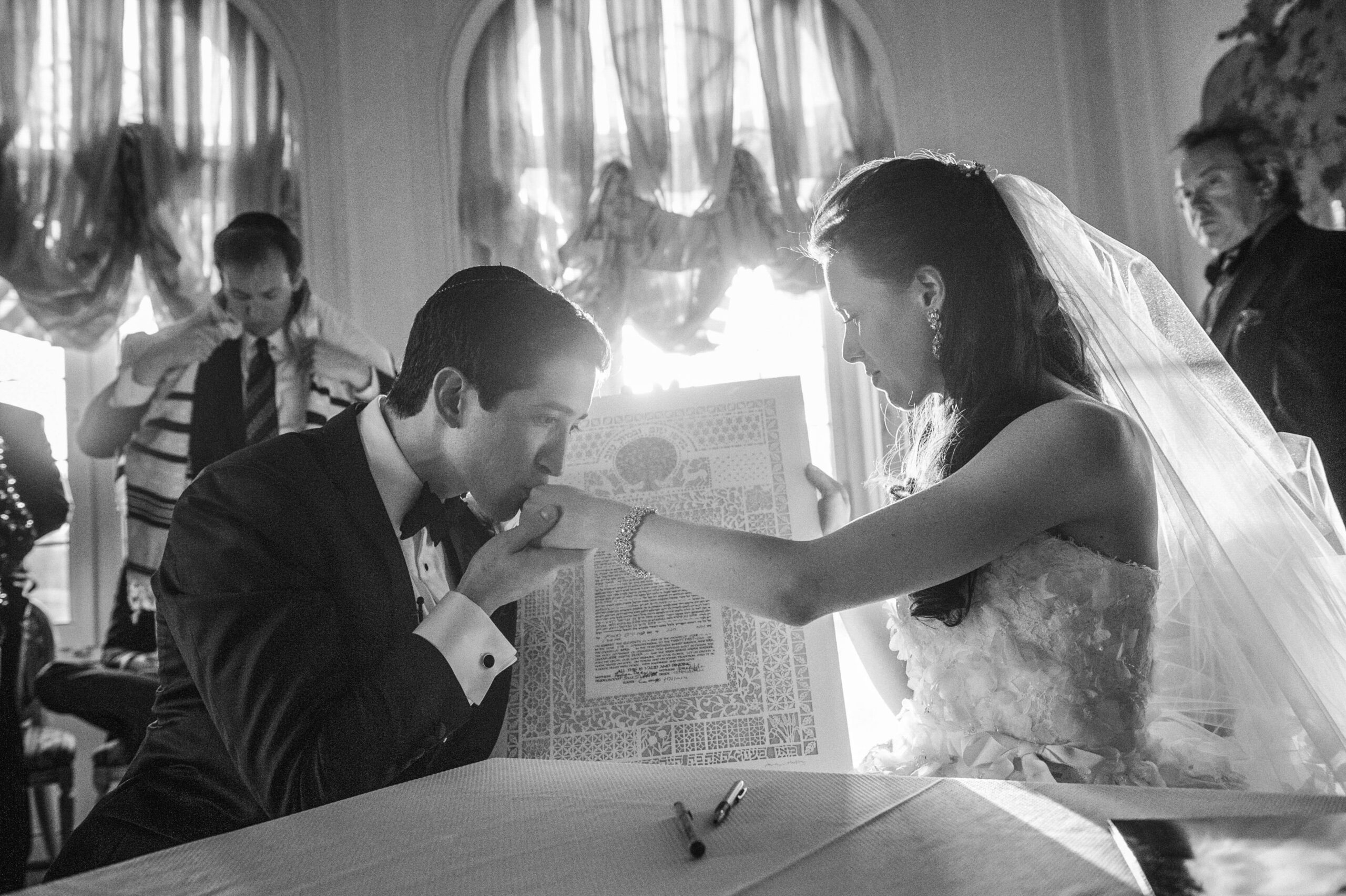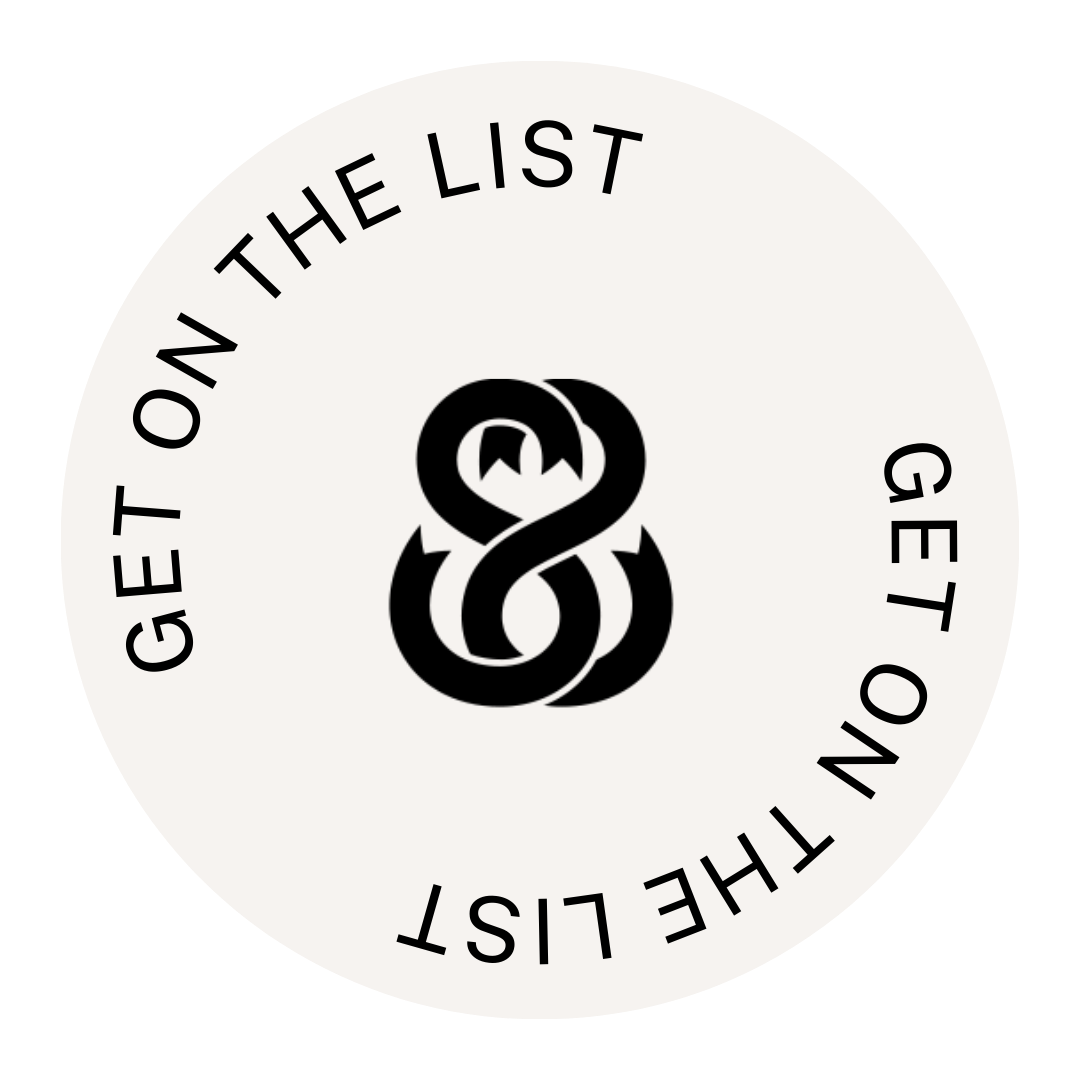Are you planning a wedding in New York? If so, I’m guessing one of the first things you’ve Googled is how to get a New York wedding license. Whether you’re a local or planning a destination wedding in the vibrant streets of NYC, the process is straightforward. In this guide, I’ll walk you through each step to ensure your big day is legally set without any hitches.
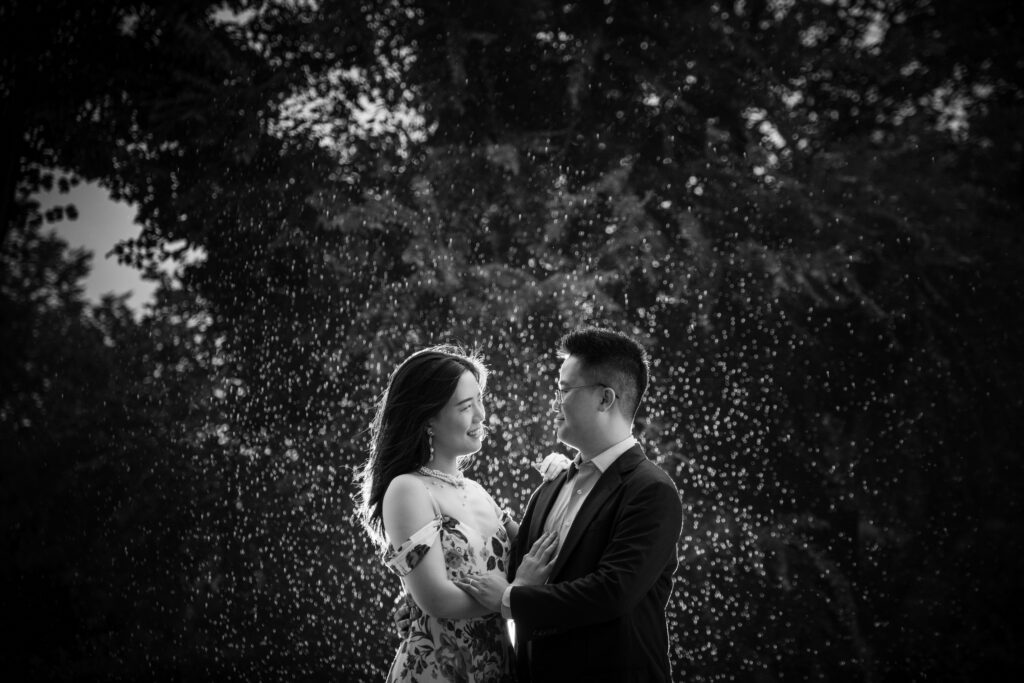
Step 1: Understand the Basics
Before applying for your New York wedding license, it’s essential to understand some key points that will make the process smoother and more flexible. In New York State, you can apply for your wedding license at any city or town clerk’s office—whether in the bustling heart of NYC or a quieter upstate town. This flexibility is particularly beneficial as it allows you to pick up your license from the most convenient location, regardless of your actual wedding venue within the state.
The license you obtain is valid statewide. This means that once you have your license, you can legally marry in any part of New York State. Whether you plan to have a glamorous ceremony atop a Manhattan skyscraper or a serene gathering beside the waterfalls of Letchworth State Park, the same license covers you across these diverse locations.
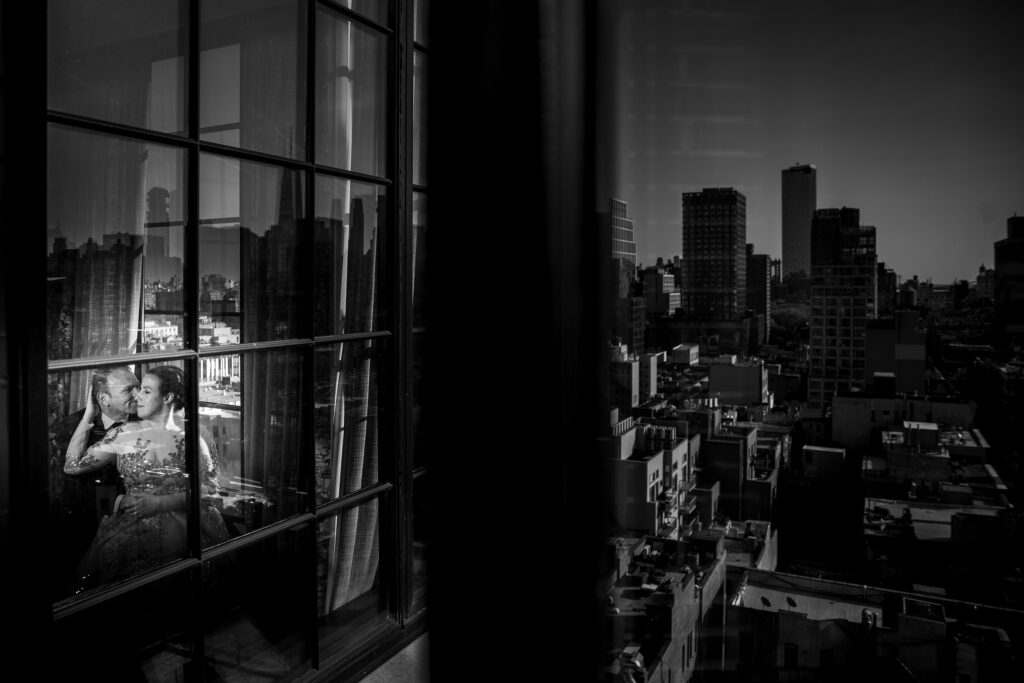
Another significant advantage, especially for couples not residing in New York, is the absence of a residency requirement. New York does not require you or your partner to live in the state to marry here. This open policy is particularly appealing for destination weddings, allowing couples from out of state or even from other countries to quickly marry in iconic New York locations without the hassle of additional legalities.
These provisions—statewide validity and no residency requirement—make New York an attractive choice for many couples planning their weddings. They provide convenience and flexibility, ensuring that part of your wedding planning is stress-free and accommodating to your needs, no matter where you or your guests are coming from.
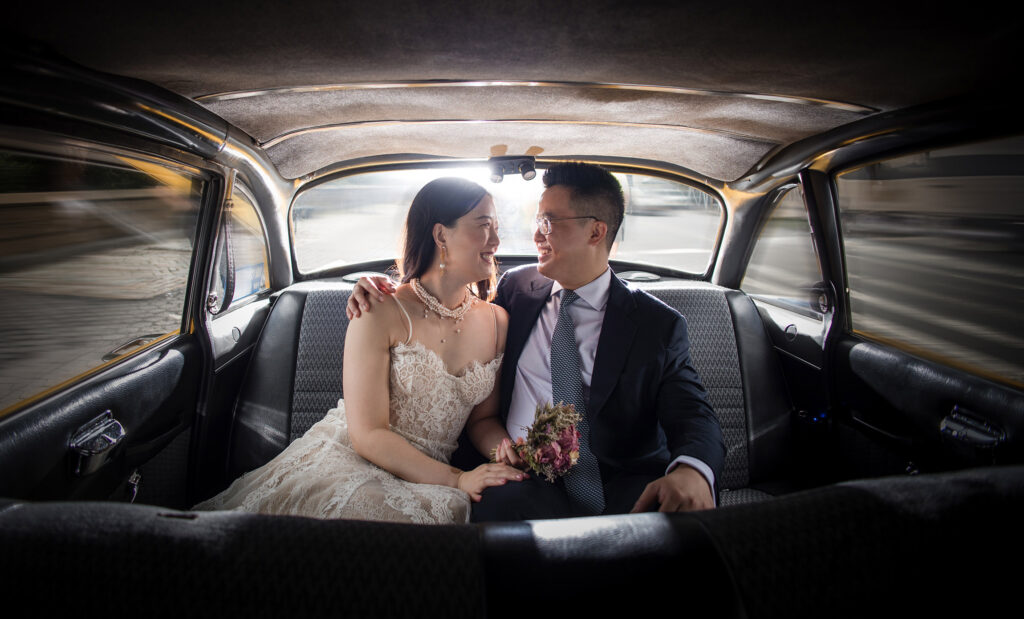
Step 2: Gather the Required Documents
To ensure that obtaining your wedding license in New York goes smoothly, both parties must prepare certain documents to verify their identity, age, and marriage eligibility. Here’s a detailed look at what you’ll need:
Proof of Age and Identity
The first requirement is to provide proof of age and identity. This can be accomplished with any government-issued photo ID. Commonly accepted documents include:
- Birth Certificate: Provides proof of age and is essential, particularly if you do not have a passport or state-issued driver’s license.
- Driver’s License: This is widely used and accepted for its convenience and because it also serves as a photo ID.
- Passport: Ideal for non-residents or if one party is from another country, as it confirms identity and nationality.
Bringing original documents or certified copies is essential, as photocopies are generally not accepted.
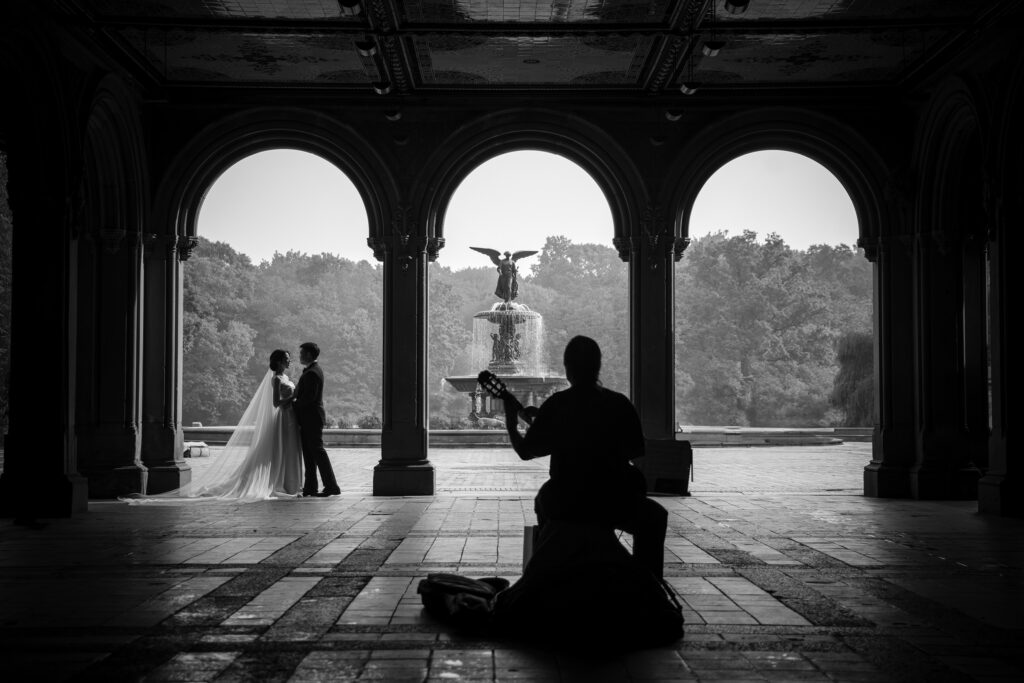
Social Security Number
If you have a Social Security number, you must provide it. This requirement helps in the administration of public records. For those who do not have a Social Security number, such as non-residents or certain international visitors, you’ll need to affirm this on the application, and it won’t hinder your ability to obtain a license.
Documentation of Previous Marriages
If either party has been previously married, you must provide documents that all previous marriages have been legally concluded. This documentation may include:
- Divorce Decree: A finalized divorce decree must prove that any previous marriage has been legally dissolved. Be sure to bring the official document, typically stamped by the court.
- Annulment Documents: Similar to divorce, an official annulment document is required to prove that the marriage was legally nullified.
- Death Certificates: If a previous spouse has passed away, a death certificate is necessary to confirm that the marriage has legally ended due to the spouse’s death.
This documentation is crucial to ensure no legal barriers to entering a new marriage. Each document must be presented in its original form or as a certified copy to be accepted by the clerk’s office.
Preparing these documents in advance will expedite the application process at the clerk’s office and help avoid any delays or complications. It’s advisable to check with the specific city or town clerk’s office where you plan to apply for any additional requirements or variations in the documentation needed. By ensuring all your paperwork is in order, you can focus more on the joyful aspects of your upcoming wedding.
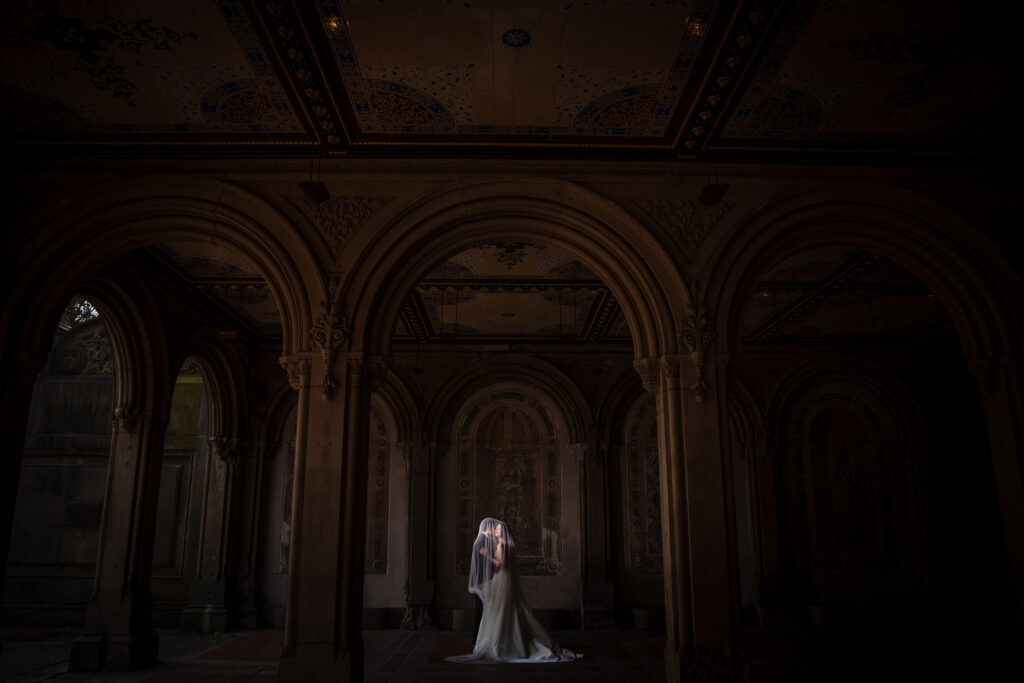
Step 3: Visit the City or Town Clerk’s Office
When applying for a wedding license in New York, one of the essential steps involves both partners visiting the city or town clerk’s office in person. This requirement is in place to verify the identity of both parties and ensure that all information provided is accurate and truthful. Here’s what you need to know about this critical step:
In-Person Requirement
New York State law mandates that both parties must be present to apply for a marriage license. This direct interaction allows the clerk to ask necessary questions and collect signatures, ensuring that both individuals are legally free to marry and enter into the marriage contract of their own free will. It also prevents misunderstandings or errors that might occur with non-face-to-face communications.
No Appointment Necessary
Typically, no appointment is necessary to apply for a marriage license at most (but not all – some require appointments) city or town clerk’s offices in New York. However, the walk-in policy can lead to waiting times, especially during busy periods or at heavily frequented locations such as New York City. Coming prepared with all the necessary documents can help speed up the process.
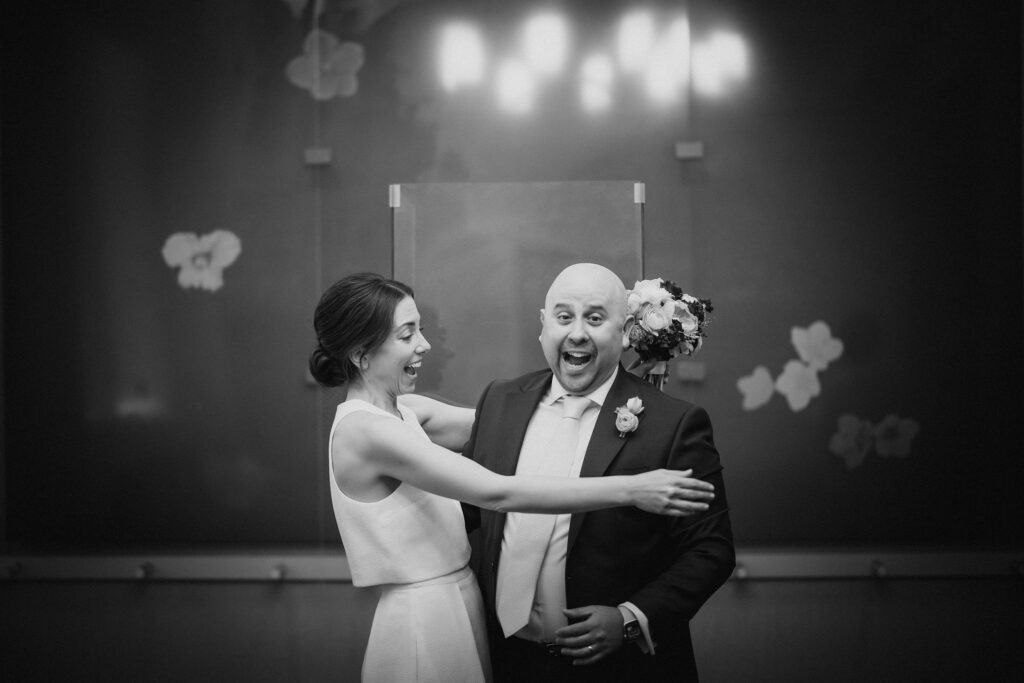
Checking Office Hours and Appointment Preferences
Since each clerk’s office may operate at different hours and have various levels of busyness, it’s highly advisable to check ahead:
- Office Hours: Verify the business hours; some offices may have specific times when they accept marriage license applications. Knowing these hours can save you a potentially wasted trip or long wait times.
- Appointment Policies: Some clerk’s offices might prefer or require appointments. During peak wedding seasons or in busier municipalities, making an appointment can ensure you’re seen promptly and the staff is prepared to assist you efficiently.
- Special Considerations: Amid circumstances like the COVID-19 pandemic, some offices might have adjusted their procedures, requiring appointments to manage flow and maintain social distancing. Always check the most current information on the clerk’s official website or call their office directly.
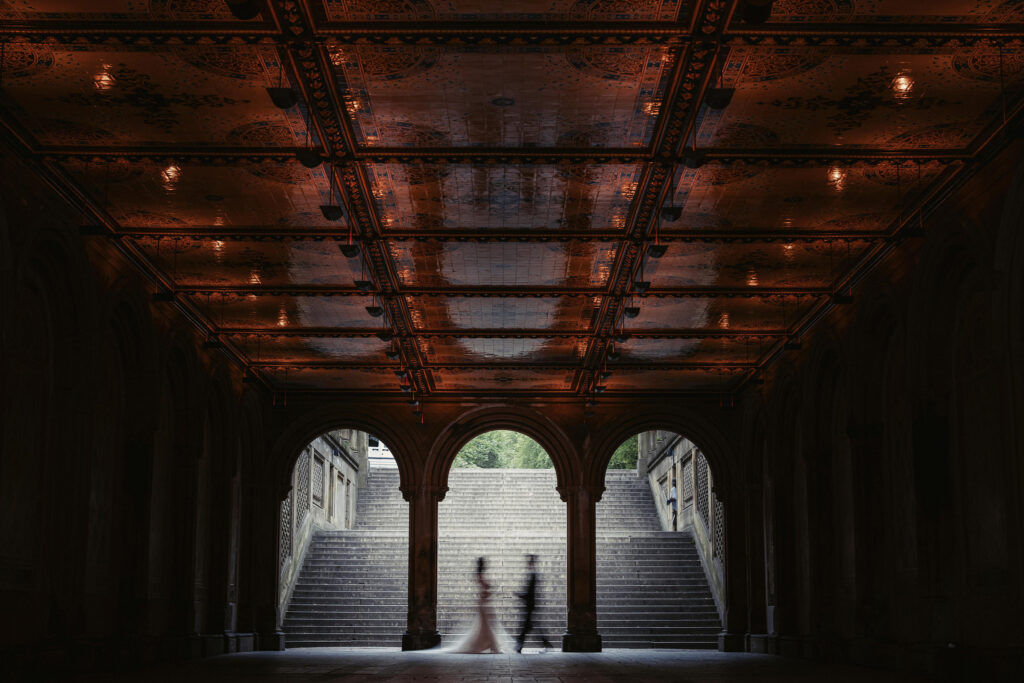
Benefits of Checking Ahead
Contacting the clerk’s office beforehand confirms their hours and appointment policies and provides an opportunity to ask about any additional specific requirements or documentation you might need. This proactive approach can significantly smooth your experience, reducing stress and uncertainty on the day of your application.
In conclusion, while appearing in person with your partner is a mandatory step in obtaining your marriage license in New York, some planning regarding when to visit and whether you need an appointment can make the process more manageable and efficient. This ensures that your focus remains on the excitement of your upcoming wedding rather than administrative details.
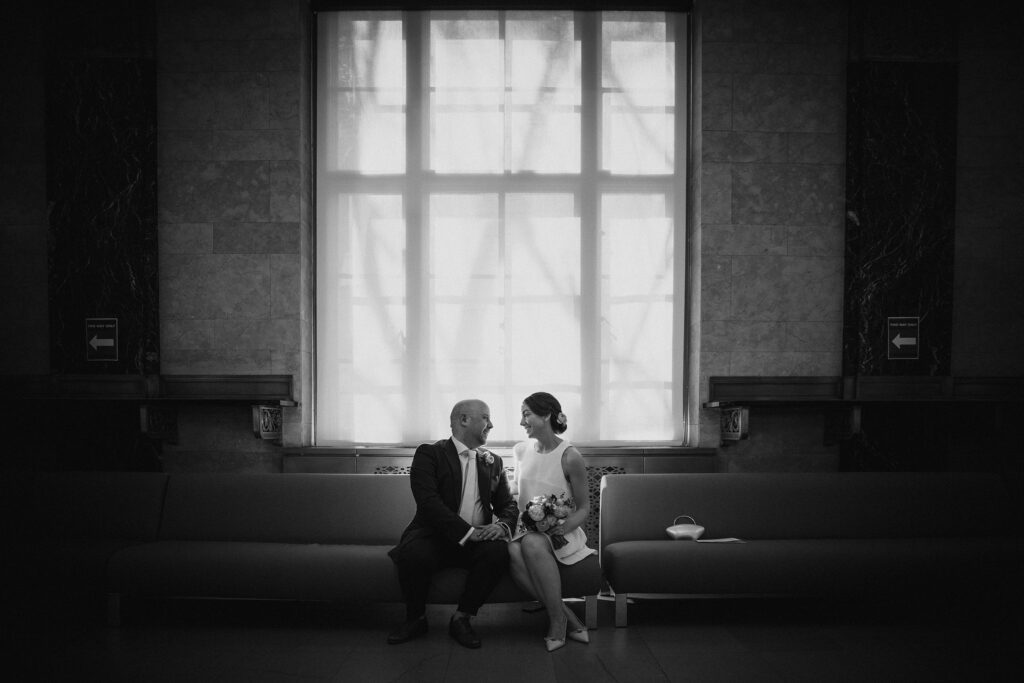
Step 4: Complete the Application
You must complete an application form when you visit the clerk’s office to apply for your marriage license. This form is a crucial document designed to gather comprehensive personal details from both parties. Here’s what you need to know about the information you will provide and why it is essential:
Completing the Application Form
The application form you’ll fill out is thorough and requires several personal information from both individuals. Be prepared to spend time ensuring all the information is accurate and complete.
Key Information Required
- Parents’ Birth Names: Please provide both parents’ full birth names. This information is often used for genealogical records and helps establish your family history.
- Parents’ Place of Birth: Along with the names, you must also list the state or country where each of your parents was born. This detail may be used for legal and statistical purposes, contributing to demographic data and helping to verify identities.
- Previous Marriages: You must disclose this information if you or your partner has been married. You will be asked how often you have been married and how your previous marriages were dissolved (divorce, annulment, or death of a spouse). This is crucial for ensuring both parties are legally free to enter a new marriage.
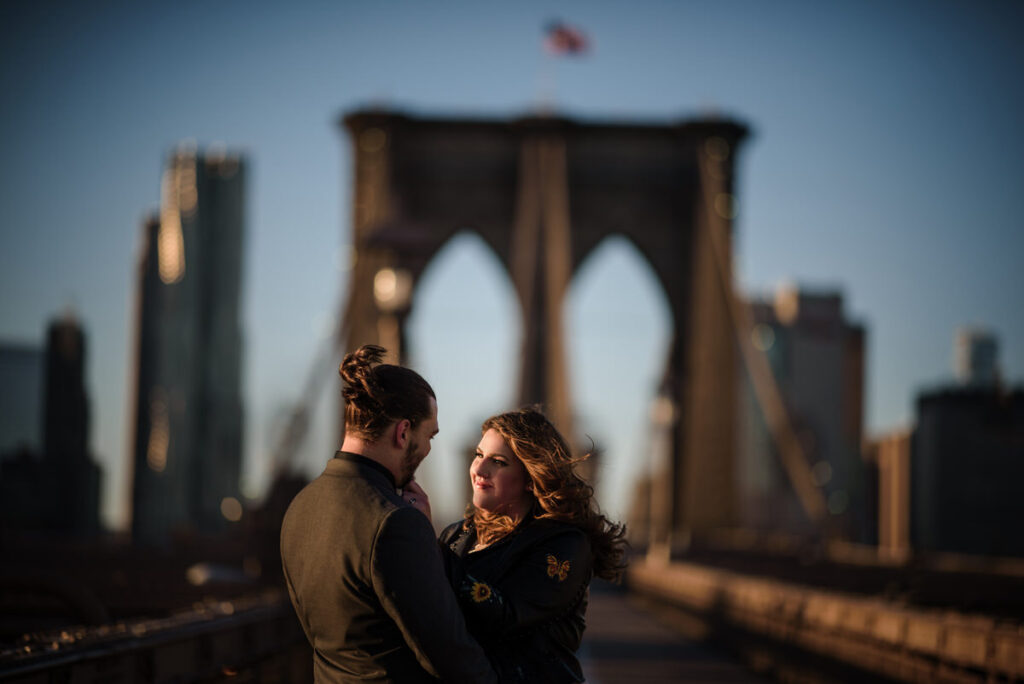
Purpose of Detailed Information
The comprehensive nature of the application serves several purposes:
- Legal Compliance: Collecting detailed personal information ensures all legal requirements are met. For instance, verifying that neither party is currently married or too closely related by blood.
- Record Accuracy: Accurate records are essential for both state and historical purposes. Marriage licenses are legal documents that may be used in various legal settings, such as inheritance cases or legal name changes.
- Statistical Analysis: Demographic data collected from marriage licenses can help local and state governments understand population trends, marriage rates, and other sociological aspects.
Tips for a Smooth Application Process
- Prepare in Advance: Gather all the necessary information before heading to the clerk’s office. Check with your parents or other family members if you are unsure about the correct details.
- Documentation: In some cases, you may need to provide documentation to support the information on your application (like a birth certificate if there is a question about your age or parentage).
- Clarifications: Don’t hesitate to ask for clarification if you are unsure how to fill out any part of the form. The clerks are there to help ensure your application is completed correctly.
By understanding and preparing the detailed information required on the marriage license application form, you can ensure a more efficient and stress-free experience when applying for your marriage license in New York. This thorough approach adheres to legal standards and contributes to the integrity and continuity of public records.
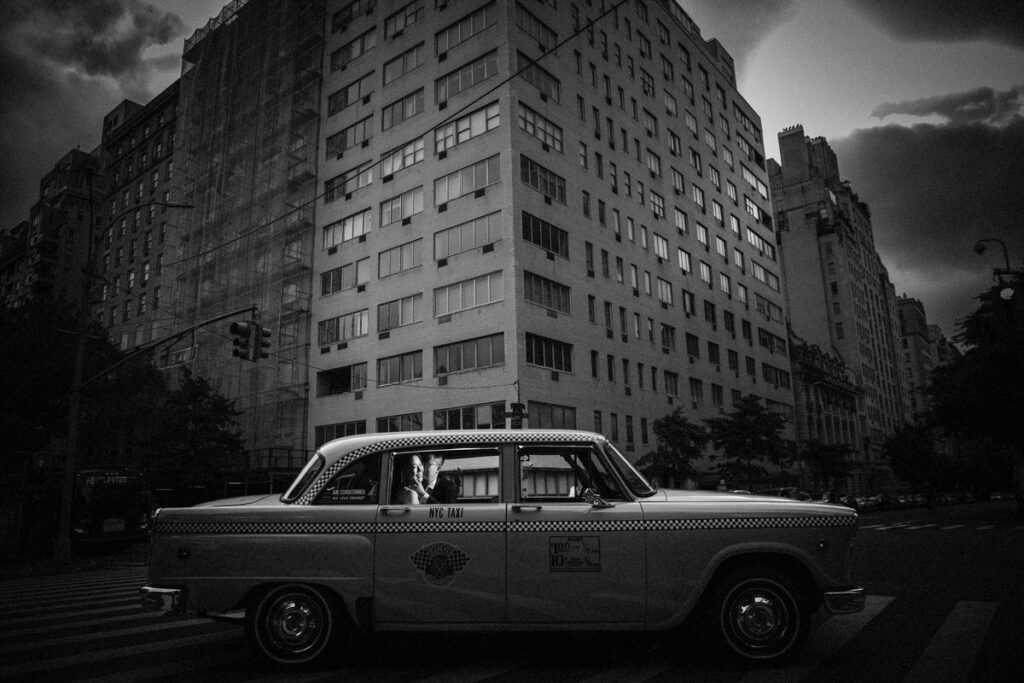
Step 5: Pay the Fee
When applying for a marriage license in New York, one of the practical considerations to keep in mind is the cost of obtaining the permit, which varies by location. Here’s a detailed breakdown of what to expect regarding the fee structure and methods of payment:
Variability in License Fees
The cost of a marriage license in New York State is not uniform across all municipalities. Fees can vary significantly depending on the city or town where you apply. Typically, these fees range between $30 and $40, but verifying the exact amount with the local clerk’s office where you plan to obtain your license is essential. This variation in fees may be due to different administrative costs or local regulations that dictate the pricing structure for marriage licenses.
Importance of Knowing the Fee
Understanding the fee for your marriage license is crucial for a few reasons:
- Budgeting: For couples planning their wedding, every detail counts, including the cost of legal documentation. Knowing the fee in advance helps budget for the license and the wedding.
- Preparation: By knowing the fee beforehand, you can ensure that you have the correct amount ready, which can help avoid delays during the application process.
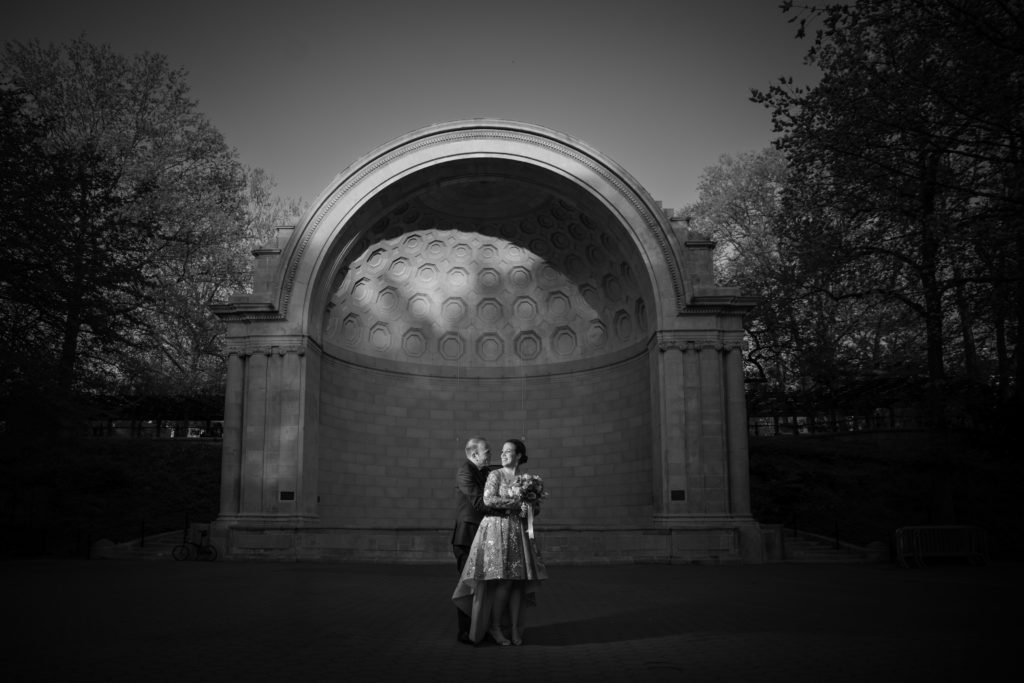
Payment Methods
Payment methods can also vary between different clerk’s offices:
- Cash: Many clerk’s offices require payment in cash. It is essential to know this requirement beforehand, as it will prevent potential delays or the need for last-minute trips to an ATM.
- Other Payment Forms: Some offices may accept other forms of payment, such as checks, credit cards, or money orders. However, these options are not universally available and may include additional processing fees or restrictions.
Checking Payment Options
It’s advisable to call ahead or check the clerk’s office website to confirm the acceptable forms of payment. Here are a few reasons why:
- Convenience: Knowing the accepted payment methods allows you to prepare appropriately, whether by withdrawing cash or bringing a check.
- Avoiding Issues: Confirming the payment method in advance can prevent any last-minute surprises or complications that could arise from bringing an unacceptable form of payment.
The fee for a marriage license in New York is an essential part of the application process, and knowing both the cost and acceptable payment methods in advance can make the process smoother and more efficient. This preparation ensures that all legal requirements are met without delay, contributing to a stress-free lead-up to your special day.
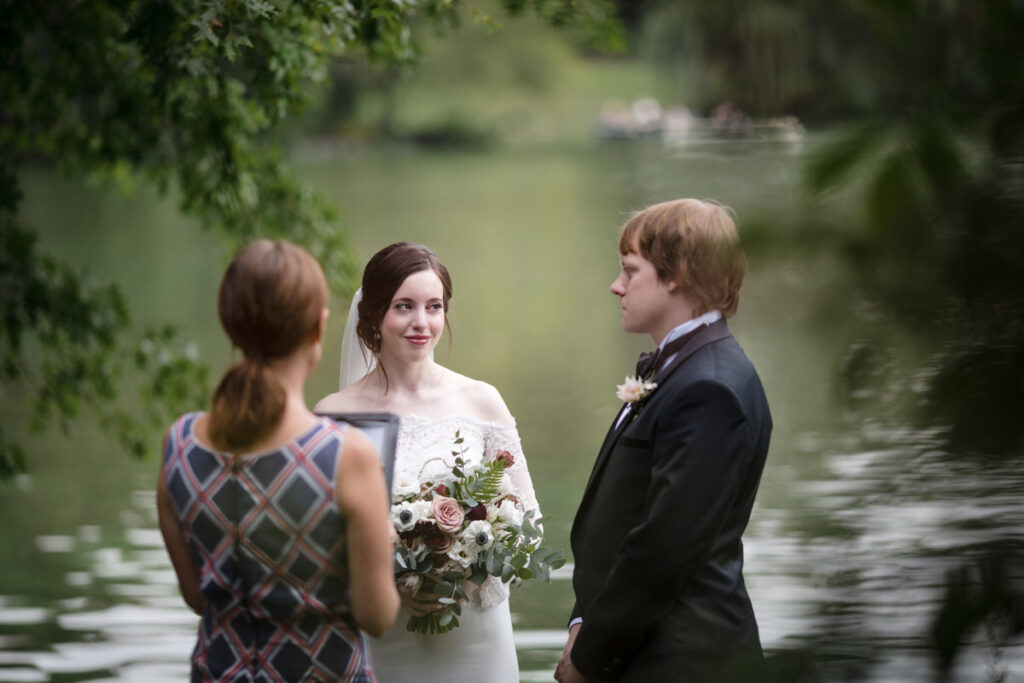
Step 6: Observe the Waiting Period
After you submit your marriage license application, you must note that there is a mandatory 24-hour waiting period before the license becomes legally valid. This requirement ensures that all parties have adequate time to decide before legally binding themselves to marriage.
However, there are circumstances where this waiting period can be waived. If you find yourself in a situation that requires immediate validation of your marriage license—for instance, due to significant personal or logistical reasons—a judge has the authority to grant a waiver. To obtain such a waiver, you must justify the urgency or necessity of bypassing the standard waiting period. The judge will review your reasons and decide whether they warrant an expedited process. If approved, the waiver allows you to bypass the usual waiting time and proceed with your marriage plans without delay.
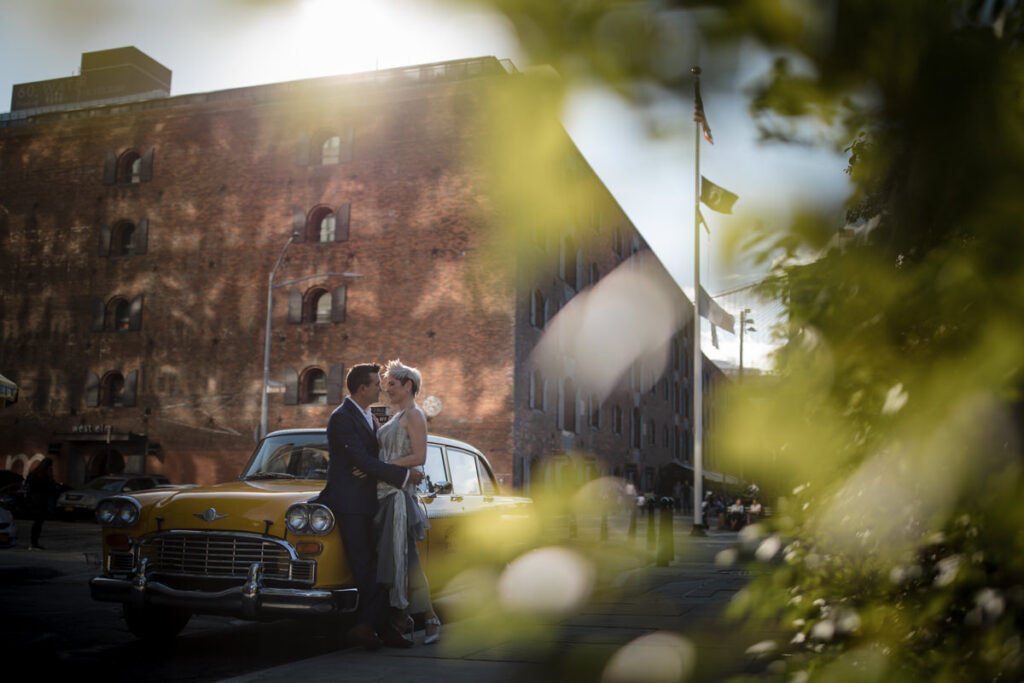
Step 7: Your License is Valid for 60 Days
When planning your wedding in New York, it’s crucial to remember that your wedding license is valid for 60 days from the date it is issued. You have two months to hold your ceremony and legally formalize your union before the permit expires. Suppose you are a member of the active military. In that case, the state provides an additional accommodation: the validity period extends to 180 days, giving you six months to plan and conduct your ceremony.
This timeline is critical to adhere to because if you do not have your wedding within these periods, your license will no longer be valid, and you will need to go through the application process again. This involves re-submitting all necessary documentation and fees and possibly undergoing another waiting period before receiving a new license.
To avoid the inconvenience and additional costs of reapplying, it’s advisable to carefully plan your wedding date and ensure that all preparations align within the validity period of your license. Consider setting reminders and working closely with your wedding planner or coordinator to track these critical dates. This proactive planning helps ensure your wedding day goes smoothly without legal hitches.
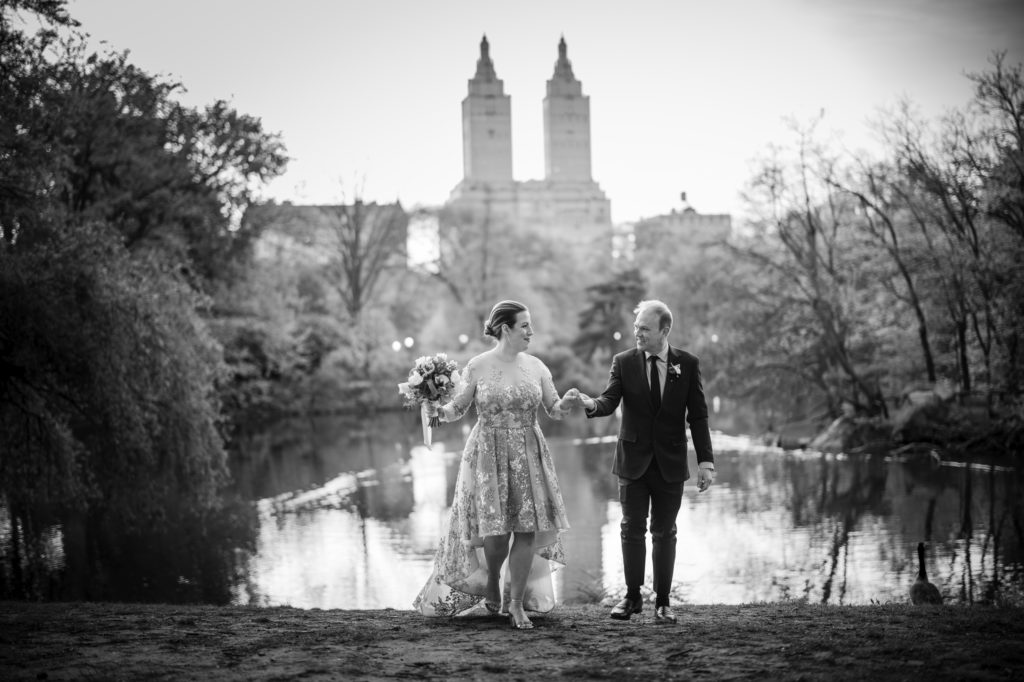
Conclusion:
Securing a New York wedding license is a straightforward but vital part of your wedding planning. By following these steps, you can ensure everything is for your special day. Remember, this legal document is just the beginning of your journey. As your New York wedding photographer, I am excited to capture every moment of your wedding day that will reflect your unique love story.
